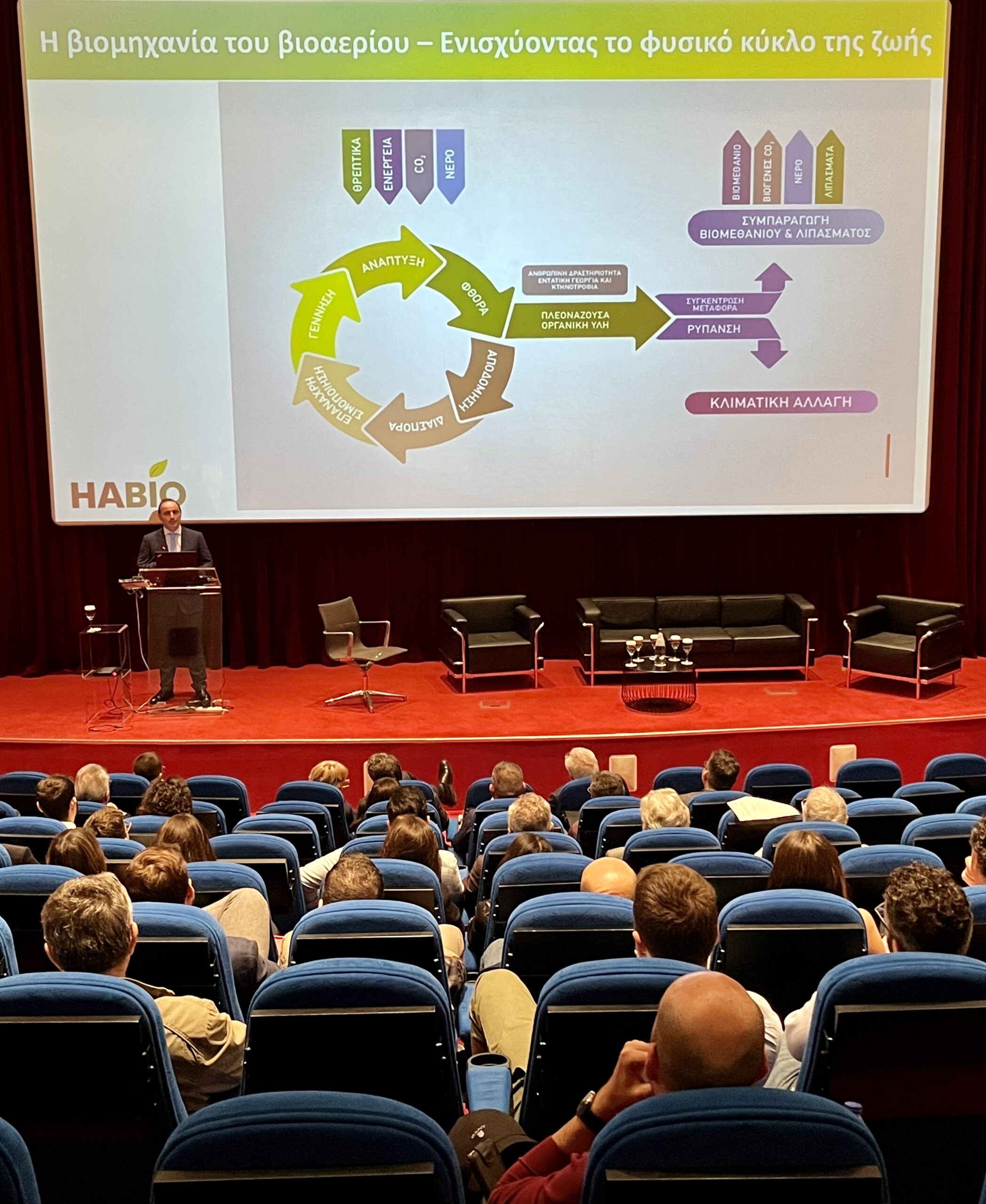More than 120 representatives of the biogas industry, companies, private and public sector stakeholders, and scientists, attended the Hellenic Association of Biogas Producers-HABIO conference titled, “Biogas-Beyond Energy: Reforming Agriculture and Energy in Greece”, that took place in Athens in the framework of the European Biomethane Week.
The event opened Mr. Thodoros Skylakakis, Minister of Environment and Energy, who emphasized the important role of biogas in the energy transition of the country and confirmed the support of the Ministry of the Environment for the sector. On behalf of the Ministry of Agriculture and Rural Development, Deputy Minister of Rural Development, Mr. Dionysis Stamenitis noted that the Ministry is gradually trying to promote contribution of biogas in the production process, since it is common knowledge that its use in the primary sector, will contribute to achieving goals for reducing greenhouse gas emissions, will contribute to the sustainability of the agricultural sector and finally, it will ensure competitiveness agriculture. Deputy Minister of Environment and Energy, Ms. Alexandra Sdoukou, stated that the biomethane draft law is now complete and ready to be submitted to public consultation with the aim of adoption in January 2024, while she assured there will be close cooperation with HABIO and biogas producers so that the new framework is operational and its implementation leads to the achievement of the goal of 2.1 TWh by 2030 in Greece. Dr.-Ing Alexandros Yfantis, President of HABIO, presented the decisive contribution of Biogas to energy, agriculture and the environment by emphasizing the value of Biomethane, a derivative of Biogas, as the most competitive and readily available renewable fuel. At the same time, he underlined the importance the use of digested residue as a soil improver has for the development, sustainability and competitiveness of agriculture, as well as the production of high-quality fertilizers of biological origin through the upgrading of liquid digested residue. Discussing with the political leadership of the Ministries of Environment and Energy and Agriculture and Rural Development and the participants, Mr. Yfantis underlined that the legislative framework for biomethane should support existing biogas units, with careful provisions for new units so that there is no further distortion of competition while incentives should be given and there should be controls in relation to the management of agricultural and livestock residues with direct interconnection with subsidies (change of agriculture model). Incentives and controls should also exist regarding the use of alternative sources of raw material (food waste from hotels, restaurants and the food industry). In addition, he emphasized the fact that there should be a legislative framework and incentives for the creation of fertilizers and soil improvers from the digested residue of biogas units, with actions such as the financing of demonstrative actions for renewable fertilizers and permitted use in organic crops under clear conditions that will not be related to whether the by-products come from organic farming as it is today. He also underlined the need to create certificates of origin and regulation of CO2 rights and the need for flexibility regarding biomethane production to the grid and BioLNG production by creating a market for certificates of origin in Greece with an emphasis on commercial shipping within Greece.
Both two panels which followed, presented important information on the development and challenges of Biogas in Greece while at the same time there was also a presentation of important pilot actions.Moreover, the corelation between Biomethane and Hydrogen was extensively analysed as the renewable gases that will replace natural gas. The conference was followed by the visit to the Mega ECO Unit in Megara, the state-of-the-art biogas plant, developed by SYCHEM and POLYECO, that emphasises circular economy and aspires to become a model in Greece as the largest and fully vertically integrated plant for the production of biogas, soil improving material and fertilizers
















